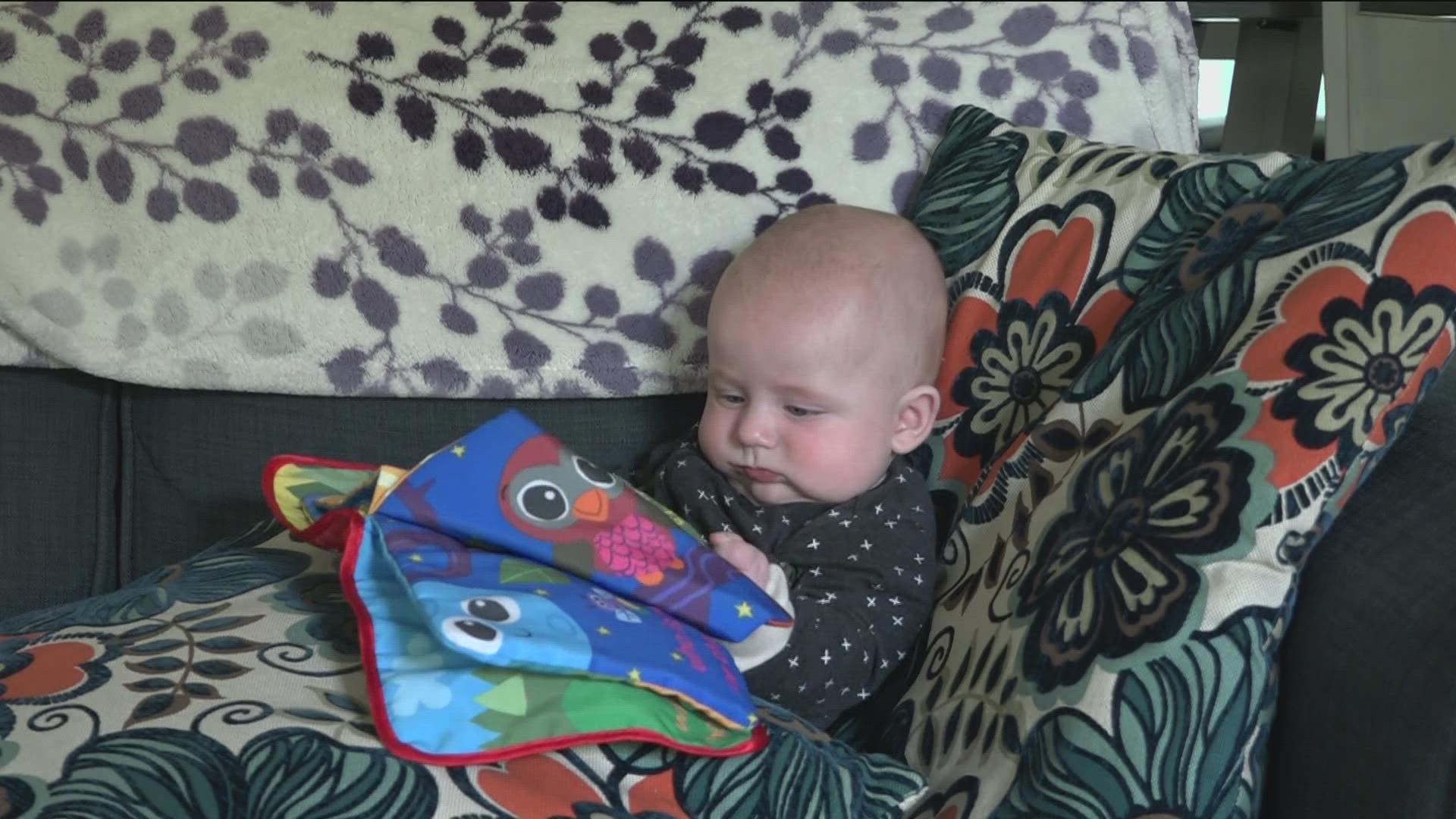TOLEDO, Ohio — While the old saying "breast is best" has merit, that’s not a viable alternative for every mom dealing with the country's ongoing shortage of baby formula.
The Biden Administration has flown in hundreds of thousands of pounds of formula to help, but for many parents, they’re still working to find the specific formula they need.
Not every mom can breast feed, and sometimes, just breast milk isn’t enough.
This rings true for Clara Karlet, a mom to four boys: Samuel, Jackson, William and Nicolas. So, she has years of experience with baby boys and their needs; that is, until the formula shortage.
"It got to the point where they were suspending the online orders of the formula. One day I think I spent two or three hours out and managed to find a small handful of cans just in the Toledo area. But, one can lasts us about three days," Karlet said.
Her youngest son, Nicolas, is a preemie, born at 34 weeks old. While he’s perfectly healthy right now, how she and other parents of preemies keep their kids growing and health is through formulas with added calories. Unfortunately, those types of formulas are not always readily available in stores, and the shortage exacerbated the already low supply.
Doctors and parents are, understandably, particular about the feeding plan for preemie babies given its importance to the child.
While breast milk is a good alternative for some when formula isn’t available, there are so many reasons why that cannot be applied to every family.
Foster and adoptive moms, for example, didn’t give birth and aren’t able to breast feed their baby, and not every mother that does give birth can produce enough or any milk.
"It's not like a Disney movie where there's, like, birds and fancy music flying around. It can be extremely difficult and extremely draining," Karlet said.
There are some resources, but they can be hard to come by.
OhioHealth Mother’s Milk Bank gives out donor milk, first to babies in NICU.
Chris Smith with the program said she’s happy a lot of donors are lining up to give milk to those in need. However, if babies are not in the hospital, it’s a lot harder to get access to donor milk, and it’s usually not free.
“If they choose donor milk, we need a prescription from the pediatrician and some other forms to be completed before we can dispense milk,” Smith said. “Last year, we distributed over 372,000 ounces of milk to babies in need and that’s about 3,000 gallons.”
So, parents like Karlet have gone online for help.
"Moms will go to the store, 'Here's where I am, this is the time. These are pictures of what they have,' and that's really helpful because you can't always trust inventory counts online,” Karlet said. “You know, 'Hey this is what I have. This is what I need. Do you know anybody who has this or needs this? I'm at this place can I grab it if you know somebody.'"
If you want to help a parent dealing with the formula shortage, be on the look out for the formula they need, don't hoard formulas you do find and make sure to check in with parents to see if they need anything else.
Karlet said parenting is hard, so she asks that people pass on help rather than judgement.

